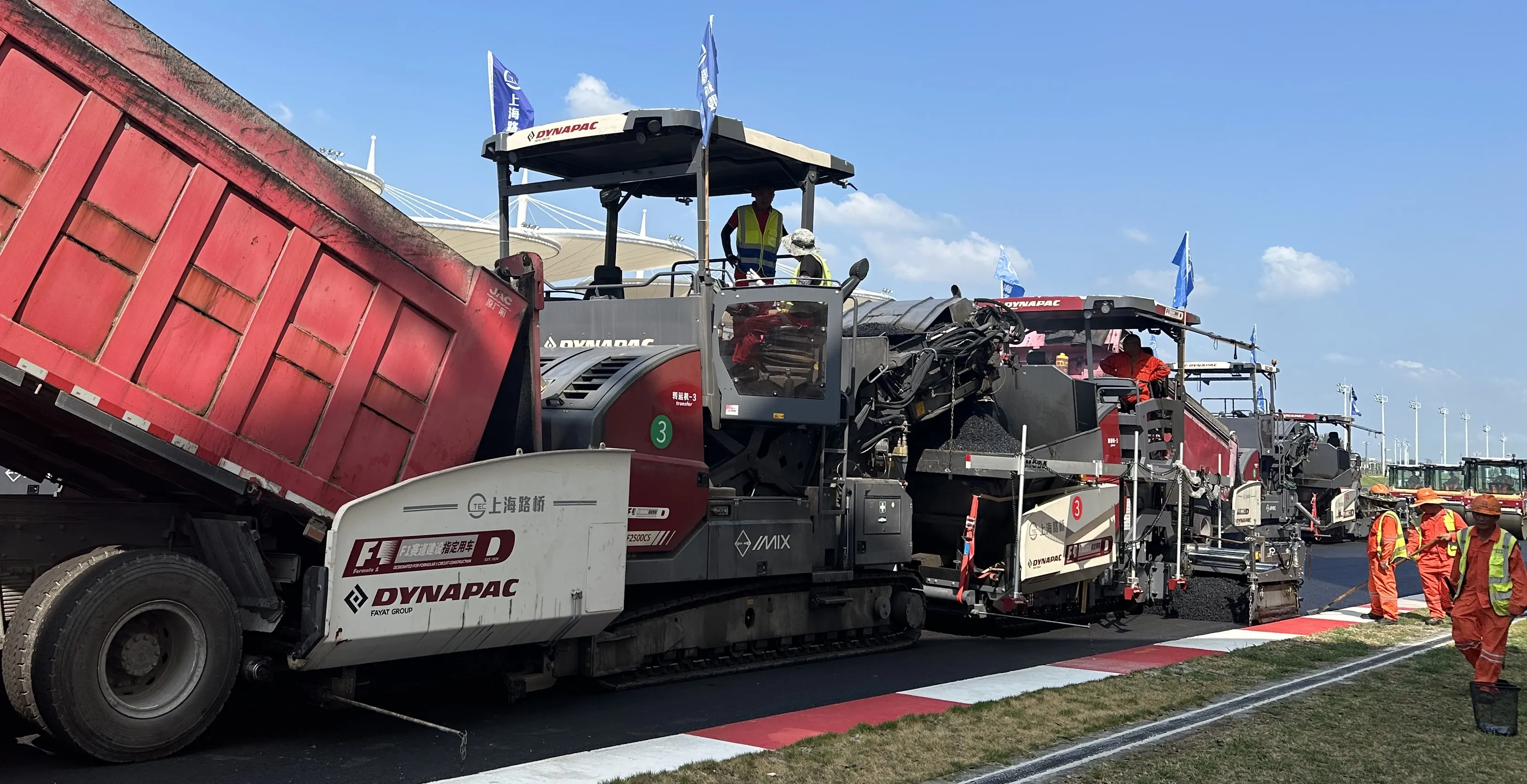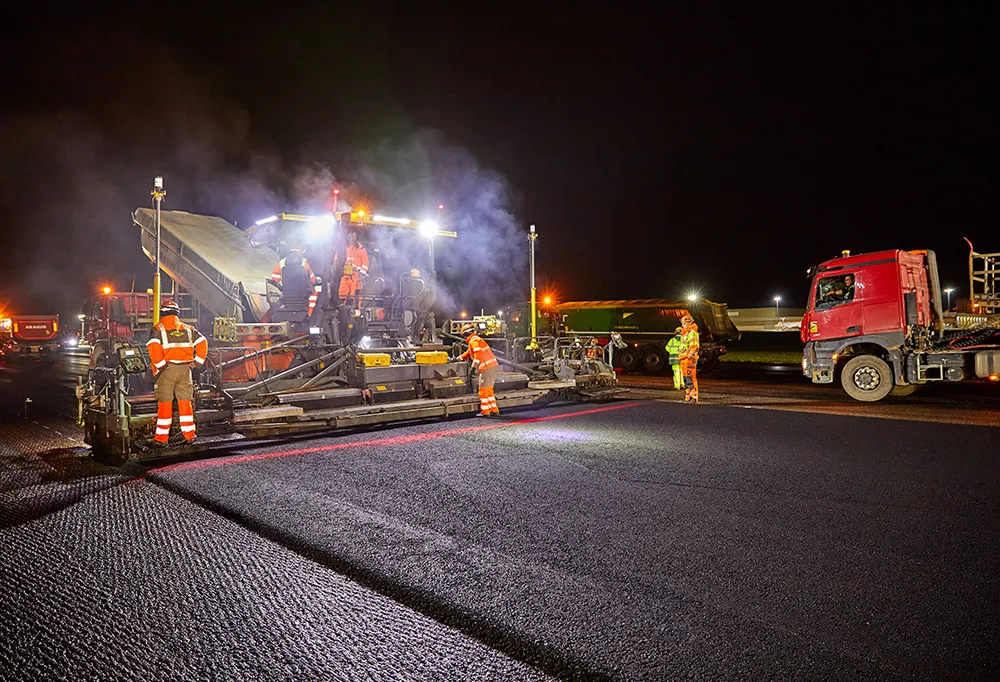
The Shanghai F1 circuit consists of the main track, buffer zone, short connecting track and working car lanes. The main track is 5,450m long and 14-15m-wide, with 16 corners and nine straights of varying lengths. This was the first refurbishment project since Shanghai F1 was first built in 2004.
Machines from Dynapac were used for all the paving and compaction works on the track. The 20 strong fleet included SD Pavers, CC4200/6200 double drum vibratory rollers, CC1200 small tandem rollers and also three mobile feeders.
The use of high-precision equipment and modern construction solutions have delivered optimum results for the track's base, middle and surface layers, which meet stringent international track's pavement standards after careful testing by a team of experts from Germany's HART CONSULTANT, the internationally renowned construction supervisory organisation for F1.
At the beginning of the project, Annie Bo, managing director of Dynapac China, said: “We are very honoured to be able to participate in the Shanghai International Circuit project again. This is not only a recognition of Dynapac's products and technology, but also an affirmation of our 20 years of intensive work in the Chinese market. Dynapac will do its best to provide the best equipment and services to ensure the project is completed on time and with quality.”
Dynapac also set up an international service support team, which was stationed at the jobsite to support for the contractor, Shanghai Highway and Bridge (Group). The Dynapac team worked with Shanghai Road & Bridge to ensure that the equipment delivered maximum quality and performance for the operation.
The refurbishment of the Shanghai International F1 began at the end of July 2024 and was completed on 4th September, almost a week ahead of schedule. After the completion of the project, F1 will have a new look and upgraded performance for international races in the future.
The application of Dynapac paving and compaction equipment has played a crucial role in improving the work efficiency of the whole project. The use of the latest techniques and the new equipment have played important roles, delivering a quality circuit for Shanghai F1 in the global racing world.








